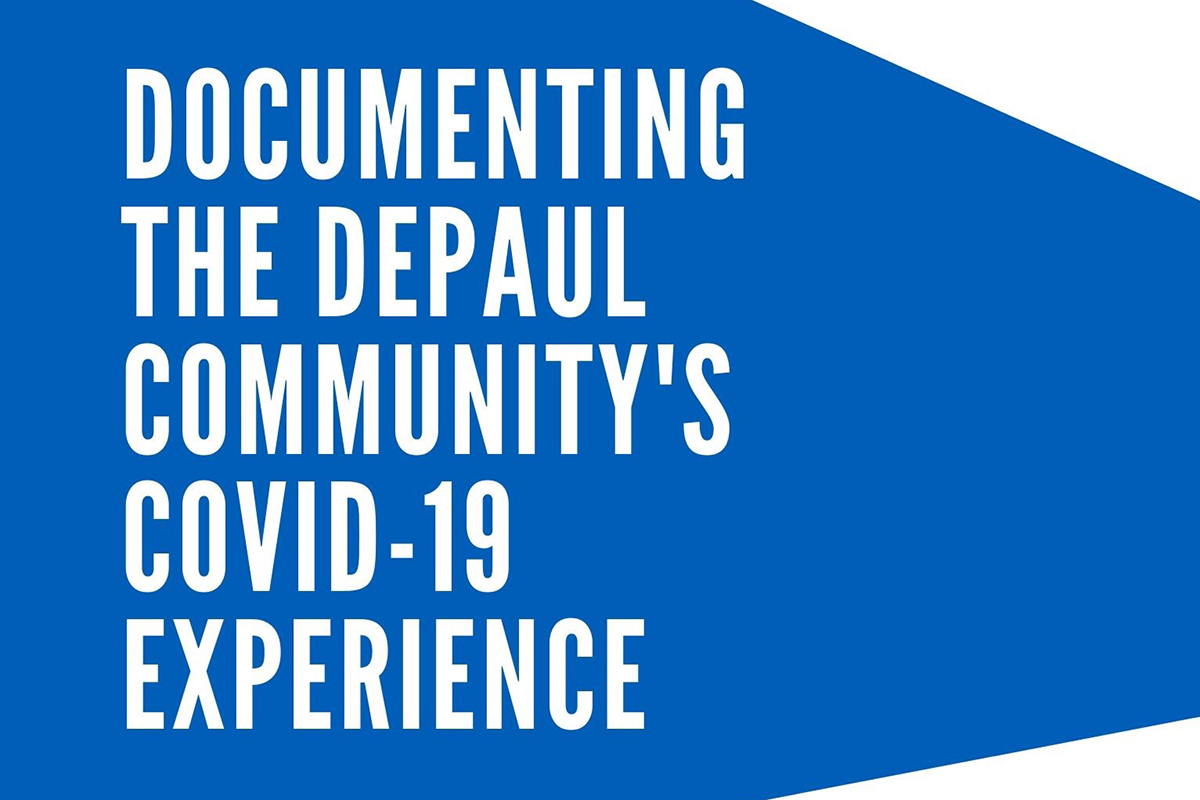
Archivists work with history every day. It is our job to select, preserve and provide access to records of enduring value so they are available to future generations for teaching, learning and research. One of our main responsibilities is deciding which records are valuable enough to preserve. The importance and impact of historical events are not always apparent in the moment. Archivists are often retrospectively dealing with gaps in collections, when records or perspectives were not preserved, lost over time or never even created.
In this current COVID-19 crisis, it is apparent we are experiencing a historic turn. The growing pandemic and the ongoing efforts to stop its spread have had a great impact on life - globally, nationally and here at DePaul. Everyone in our community has been affected.
In an effort to record this significant and unique period in time as it unfolds around us, University Archives is inviting students, staff and faculty to document and share their personal stories from the coronavirus outbreak to preserve them in the archives so we can actively record the varied lived experiences of this historical moment. While official university responses will be recorded and preserved in the University Archives through administrative records transfers, we also want to ensure the inclusion of our DePaul community members' personal experiences and reactions.
We want to get a sense of how you are managing your courses, research, work and family life, as well as how you are feeling throughout this period. We are interested in stories about the shift to remote teaching, learning and working; the ways you are staying in touch during this period of social distancing and self-quarantine; and creative ways you have coped with the situation, discovered meaning from it and integrated a sense of mission into your work.
How you choose to record your experience is up to you. You may decide to document your thoughts in one day, maintain a diary for several weeks or create reflections periodically. You may write about your experience, record voice memos or an audio oral history, take photographs or videos, create artwork or save your social media posts. Whichever methods you choose, we encourage you to participate and share your story so future generations can more fully understand this critical moment in history.
For more information about how to record your COVID-19 experience and submit your documentation, please visit the
Transferring Records to University Archives webpage.